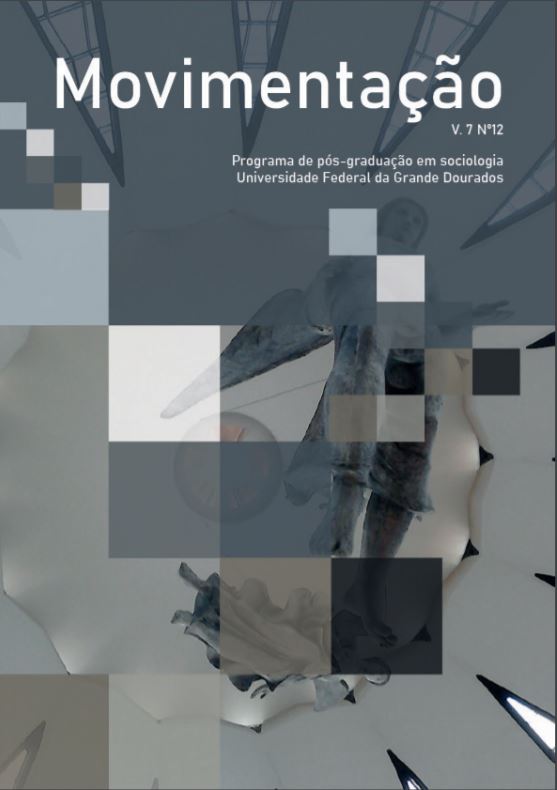Points of contact: the relationship between the far-right’s discourse and evangelical religiosity in Brazil
DOI:
https://doi.org/10.30612/mvt.v7i12.11918Keywords:
Politics. Religion. Democracy.Abstract
This work analyzes the connections between the far-right’s discourse in Brazil and the solid support it gets from evangelical Christians. Through a documentary, observational and bibliographical research, it is shown here that the main components of such a discourse — that is, a revaluation of traditional family, the preponderance of faith over reason, the organization of society via discipline and order, and McCarthyism — managed to establish a link with evangelical religiosity due to its emphasizing common values between the far-right and a kind of understanding of Christian faith that is predominant among evangelicals. Although there are tensions and contradictions in such a relationship, evangelicals have become one of the most faithful social segments to Brazil’s far-right government’s theses, from which the latter borrows ideological, parliamentary and ecclesiastical support. The intermediation between the far-right and evangelism has been carried out through an intense politically oriented communication via social networks and the influence of religious leaders in churches who are committed to “Bolsonarism”. Given the wide presence of evangelicalism in Brazil’s population, the political behavior of such people has direct implications in sustaining the Bolsonaro government and is, thus, an important object of study for investigations which focus on developing Brazilian democracy.
Downloads
References
ANDRADE, R.O. Novos arranjos nos lares brasileiros. Pesquisa Fapesp, Ed. 263, Janeiro, 2018.
ARRETCHE, Marta. Democracia e redução da desigualdade econômica no Brasil: a inclusão dos outsiders. Revista Brasileira de Ciências Sociais [online]. 2018, vol.33, n.96, e339613. Epub Jan 08, 2018.
BOAS, Taylor C. Evangelicalism, conservative parties and voting behavior in Latin America. In: CONFERÊNCIA “FINDING RELIGION” DO INSTITUTE ON CULTURE, RELIGION, AND WORLD AFFAIRS, 1., 2019. Anais... Boston: Universidade de Boston, 29 mar. 2019. Disponível em: http://people.bu.edu/tboas/evang_voting_behavior.pdf. Acesso em: 10 maio 2020.
BRPOLÍTICO. Questão moral pesa mais que renda para eleitorado pobre, diz pesquisa. Disponível em: https://brpolitico.com.br/noticias/questao-moral-pesa-mais-que-renda-para-eleitorado-pobre-diz-pesquisa/. Acesso em: 13/04/2020.
DATAFOLHA. Eleições 2018: Brasil – Intenção de voto para presidente da República – 2º turno – 25/10, 2018. Disponível em: http://media.folha.uol.com.br/datafolha/2018/10/26/341 6374d208f7def05d1476d05ede73e.pdf. Acesso em: 10 maio 2020.
D’ANCONA, Matthew. Pós-verdade: a nova guerra contra os fatos em tempos de fake News. Barueri, São Paulo: Faro Editorial, 2018.
GARDNER, E.C.. Fé bíblica e ética social. Rio de Janeiro: Juerp, 1982.
KAKUTANI, Michiko. A morte da verdade. Editora Intrínseca, ASIN B07GDTWP3M, 2018.
LEVITSKY, S.; ZIBLATT, D.. Como as democracias morrem. Rio de Janeiro: Zahar, 2018.
LILLA, Mark. O progressista de ontem e o do amanhã: desafios da democracia liberal no mundo pós-política identitárias. São Paulo: Companhia das Letras, 2018.
MARIANO, Ricardo; GERARDI, Dirceu André. Eleições presidenciais na América Latina em 2018 e ativismo político de evangélicos conservadores. Revista USP, São Paulo, n. 120, p. 61-76, jan./fev./mar. 2019.
RUNCIMAN, David. Como a democracia chega ao fim. São Paulo: Todavia, 2017.
STANLEY, Jason. Como funciona o fascismo: a política do nós e eles. Editora L&PM, ASIN 8525438200, 2018.
TONET, Ivo. Marxismo, religiosidade e emancipação humana. Maceió: Coletivo Veredas, 2016.
UOL. Ataques ameaçam trabalho científico, diz presidente da Fiocruz. Disponível em: https://noticias.uol.com.br/colunas/chico-alves/2020/04/21/ataques-ameacam-trabalho-cientifico-diz-presidente-da-fiocruz.htm. Acesso em 21/04/2020.
Downloads
Published
How to Cite
Issue
Section
License
Authors must accept the publication rules when submitting the journal, as well as agree to the following terms:
(a) The Editorial Board reserves the right to make changes to the Portuguese language in the originals to maintain the cultured standard of the language, while respecting the style of the authors.
(b) Authors retain the copyright and grant the journal the right to first publication, with the work simultaneously licensed under the Attribution-NonCommercial-ShareAlike 3.0 Brazil (CC BY-NC-SA 3.0 BR) that allows: Share - copy and redistribute the material in any medium or format and Adapt - remix, transform, and create from the material. CC BY-NC-SA 3.0 BR considers the following terms:
- Attribution - You must give the appropriate credit, provide a link to the license and indicate whether changes have been made. You must do so under any reasonable circumstances, but in no way that would suggest that the licensor supports you or your use.
- NonCommercial - You may not use the material for commercial purposes.
- Sharing - If you remix, transform, or create from material, you must distribute your contributions under the same license as the original.
- No additional restrictions - You may not apply legal terms or technological measures that legally restrict others from doing anything that the license permits.
(c) After publication, authors are allowed and encouraged to publish and distribute their work online - in institutional repositories, personal page, social network or other scientific dissemination sites, as long as the publication is not for commercial purposes.



